Last year’s devastating wildfires ravaged much of British Columbia, scorching many recreational trails in their wake. Restoring the damaged land is a methodical process. Many ATV and motorcycle clubs are undertaking the arduous task of rebuilding their trail systems as best they can given the circumstances.
Sasha Kokesch is the president of the Williams Lake Off Road Motorcycle Association and has been involved with the club for the past dozen years. He is keenly aware of the challenges that lay ahead of him and fellow Williams Lake riders.
“We’re at a crossroads with the group due to the fires,” Kokesch said. “It's such an unquantifiable disaster. The last five years, we’ve worked very hard to get an established, approved recreation area from the province. Last year, we lost 70 per cent of our trails and infrastructure that we put in.”
Some of it may be able to be reclaimed, but it’ll be closer to the middle or end of summer before anything is established.
Williams Lake’s record snowfall this past winter has made assessing the area a challenge. Up until early May, access has been blocked off by excess snow.
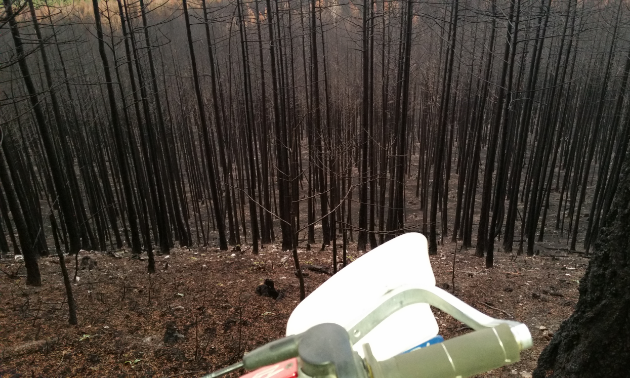
Burnt trees litter a Bull Mountain ridgeline after the fire where a trail used to run. — Photo courtesy Sasha Kokesch
Kokesch’s strategy going forward is to pursue building new trails in places that weren't affected by the fire, close to the Section 57 recreation area, where some trails didn't get burned. “We're starting out with our parking lot, outhouse, access road and then we gotta start over again,” he said.
Every move that the Williams Lake Off Road Motorcycle Association makes now has to be approved to make sure it’s not in conflict with other land users in the area. There are also soil erosion concerns because of a lack of education and much of the terrain isn’t permitted until danger tree assessments are completed.
“As soon as you involve a recreation officer and a land-use permit for a recreation area, then you open yourself up,” Kokesch said. “To go in there and make changes, you have to submit your GPS plan. Then they go out there and let you know if it’s OK or not before you can actually pound it in and flesh the trail out. As much as the cowboy in me wants to go out there and say, ‘Let's hang some ribbon and punch this through,’ we have to follow and respect the process that the government is overseeing.
“They’ve done their first reports, where they’ve gone out and identified that there are danger areas, which is pretty well most of it,” said Kokesch. “They logged really hard last winter to get out the harvestable timber that was burnt. When a tree burns, it scorches the bark but the timber is still there. The mills have gone in and logged it all to harvest it for money. The rest of the trails are left with spindly little pine tree Popsicle sticks standing up everywhere. They're all black with no foliage. As soon as the root structures erode or are compromised by wind, it'll be just like pickup sticks out there.”

It’s not all doom and gloom—Williams Lake still has trails to ride and have a good time on. — Photo courtesy Sasha Kokesch
Despite the hardship, Kokesch exhibits optimism. “This isn't the end for us,” he said. “It puts us in a rough spot with our registered recreation area, but we're fairly fortunate to have many different spots to go riding on any given day. Exciting things will come out of the wash because we have to build new stuff. Fresh stuff is always more interesting than old stuff. We'll overcome this for sure. It'll come out better than ever.”
Sasha Kokesch’s tips on how to be a responsible rider:
1. Obtain a spark arrester
Spark arresters are very important. Personally, I’ve lit a fire with sparks that come out of my un-spark-arrested muffler on an old KTM that I had. If it wasn't for it being dark and a good friend noticing it, I could've burnt down my favourite riding area right in my backyard. You would've never sold me on the idea before that happened but, let me tell you, my FMF shorty went in the next day and got a spark arrester.
2. Block header pipe awareness
If you stop in dry grass, hot brake rotors and block header pipes can start a fire even easier than no spark arrester. A header pipe on a four-stroke can go red-hot. If it'll light a cigarette off of it, it'll light grass on fire.
3. Clear away debris and foreign objects
Things like a pinecone trapped between the frame and a header pipe will do the same thing. Think about your favourite place that you like to ride—your secret stash, so to speak—where you go to enjoy yourself and be out in nature. Would you do anything that would compromise your ability to go back there again?
4. Know when to call it a day
Avoiding high temperature extremes is the first smart step to minimizing wildfire issues related to trails and off-road use. There are times when it's the responsible thing just to bow out and avoid going into certain areas that are more sensitive to fire. As off-road users, we are stewards of the environment.
5. Understand the consequences
Riding on Crown land is not a right, it's a privilege. All it takes is for one of us as users to start a forest fire and they can pinpoint it back to one of the users. The ramifications of that are endless as to how it could affect the regulations and process we would have to go through just to be able to own a motorcycle, let alone use it.
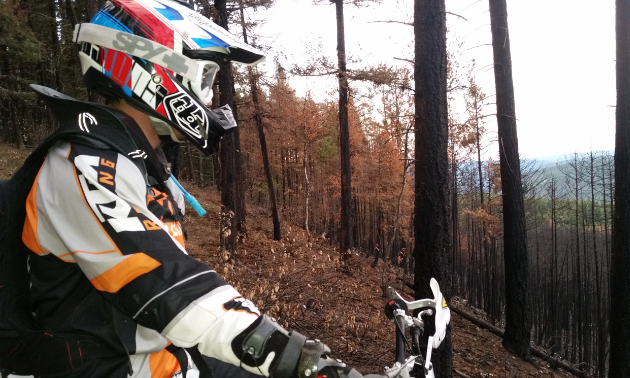



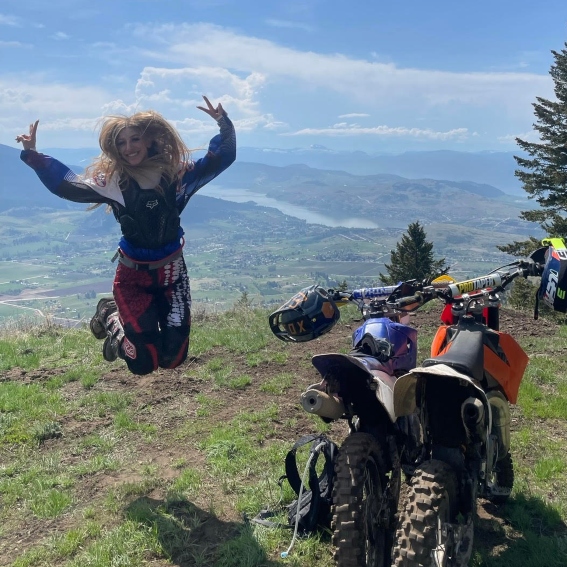
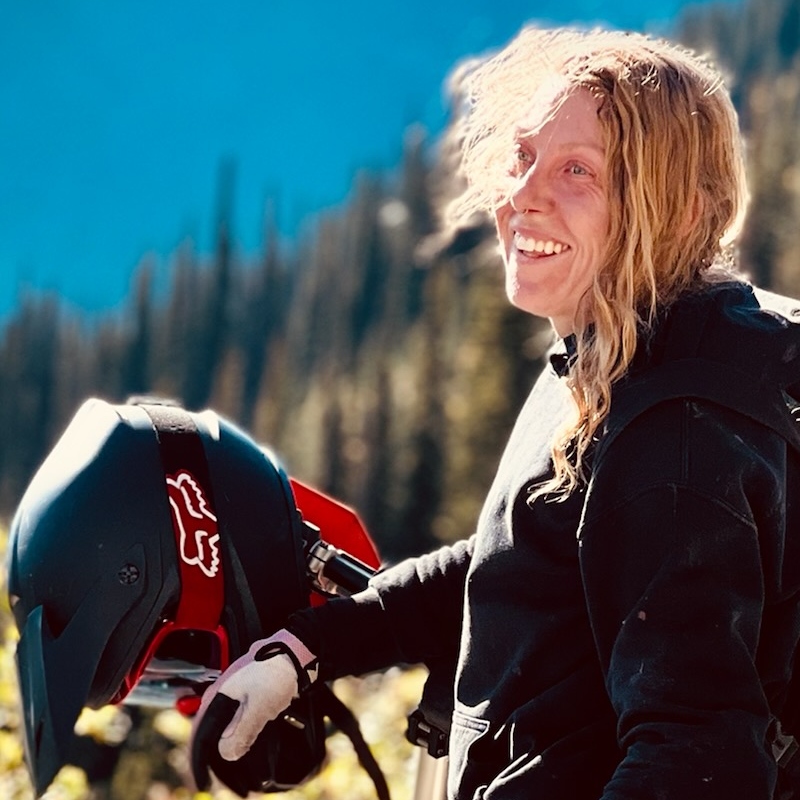
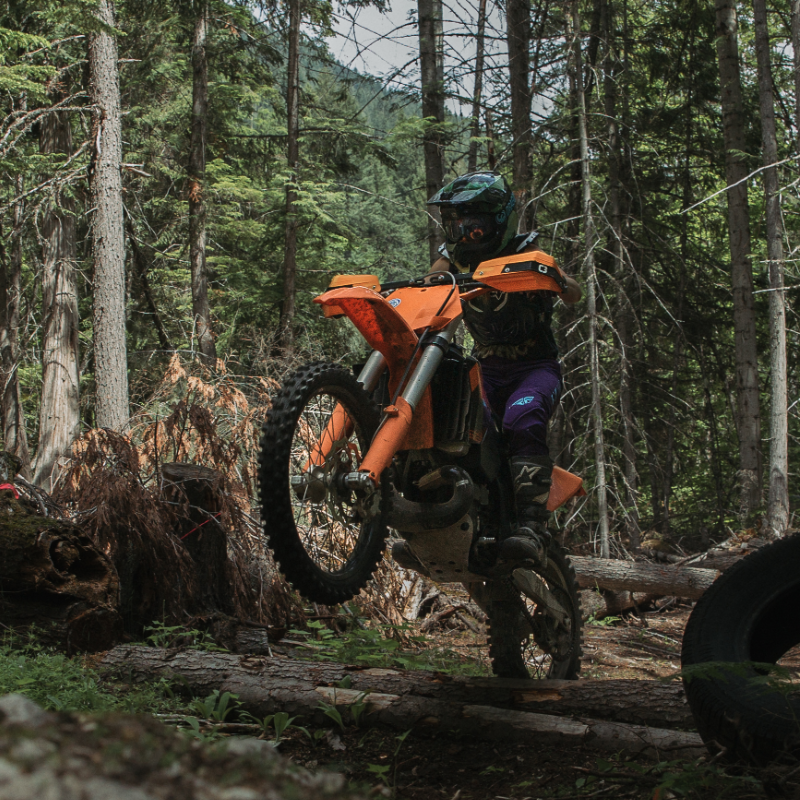

Comments